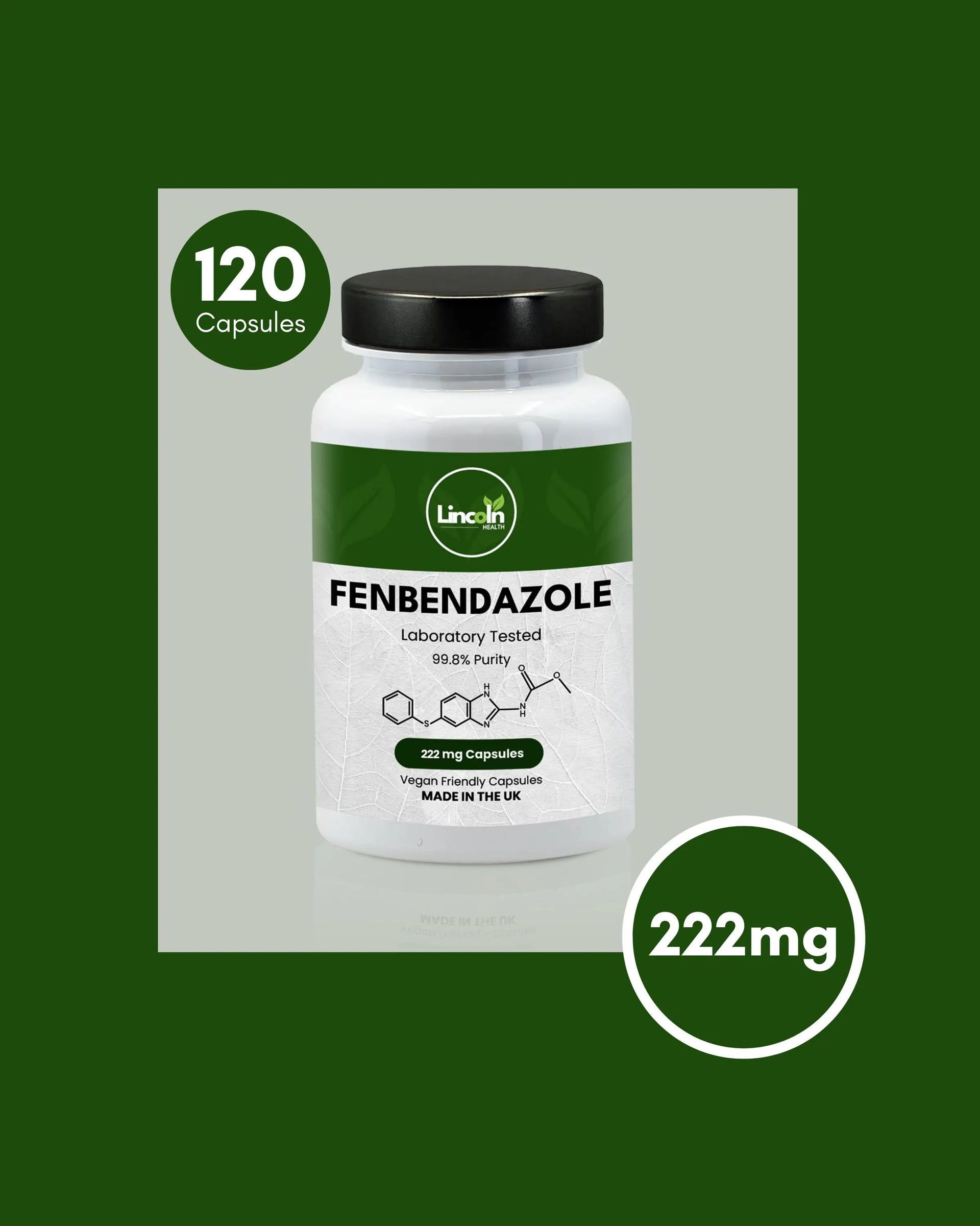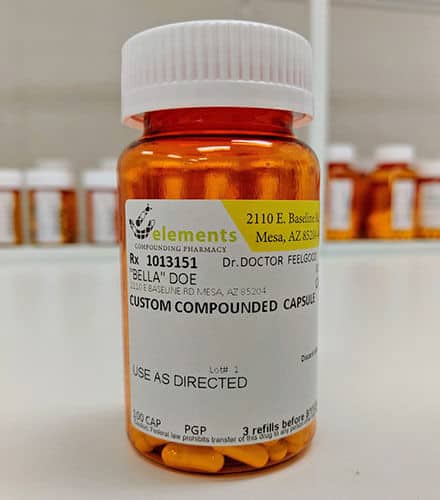Checking out the Devices Behind Fenbendazole and Its Influence On Pet Wellness
Fenbendazole is an extensively made use of anthelmintic understood for its performance against different parasites. Its key mechanism includes the restraint of microtubule formation, which interrupts crucial processes in these microorganisms. Beyond its antiparasitic residential or commercial properties, fenbendazole also shows up to boost immune actions and possesses anti-inflammatory benefits. Comprehending these complex impacts can reveal brand-new applications for animal wellness. Concerns remain concerning its full capacity and security account.
The Pharmacokinetics of Fenbendazole
The pharmacokinetics of fenbendazole, an extensively utilized anthelmintic in vet medication, includes the research study of its absorption, distribution, metabolic rate, and excretion within animal systems. After management, fenbendazole is quickly soaked up from the stomach system, with peak plasma focus taking place within hours. Its distribution is influenced by factors such as cells binding and lipid solubility, permitting it to pass through various tissues efficiently. The drug undergoes substantial metabolic rate mainly in the liver, where it is exchanged energetic and non-active metabolites. These metabolites play a function in the drug's general efficiency and safety and security profile. Excretion happens mostly through feces, with a smaller sized proportion removed via pee. The half-life of fenbendazole differs amongst types, which impacts application programs. Understanding these pharmacokinetic residential properties is vital for maximizing its therapeutic usage and ensuring reliable parasite control in veterinary techniques.
Devices of Activity Against Parasites
Fenbendazole exerts its antiparasitic effects mainly with the restraint of microtubule development in bloodsuckers. This disturbance influences their structural stability and mobile functions, resulting in damaged basal metabolism. Because of this, the drug effectively jeopardizes the survival and reproduction of different parasitic organisms.
Restraint of Microtubule Formation
Inhibition of microtubule development represents an essential system with which particular anthelmintic representatives, consisting of fenbendazole, apply their effects on parasites. Fenbendazole binds to tubulin, a protein that forms microtubules, interfering with the polymerization process essential for microtubule assembly. This disturbance impairs necessary mobile features, consisting of mitosis, intracellular transportation, and architectural honesty. As microtubules play an essential duty in keeping the form and function of parasitic cells, their restraint results in cell cycle arrest and eventual death of the bloodsucker. This device is specifically reliable versus nematodes, as their reliance on microtubules for mobility and nutrient absorption makes them at risk to fenbendazole. The inhibition of microtubule development is a critical aspect of fenbendazole's restorative effectiveness in vet medication.
Disruption of Basal Metabolism
Interfering with basal metabolism is another crucial mechanism through which fenbendazole targets parasitic organisms. This anthelmintic modifies the power manufacturing pathways within bloodsuckers, mainly impacting their capacity to generate adenosine triphosphate (ATP) By preventing glucose uptake and disrupting mitochondrial function, fenbendazole restrictions the energy resources necessary for the survival and recreation of these organisms. As a result, parasites end up being increasingly susceptible to environmental stress and anxieties and immune feedbacks. The disturbance in power metabolism not just impacts the bloodsuckers directly however additionally lowers their ability to assimilate nutrients, even more hindering their growth - 222 mg. Generally, the disturbance of basal metabolism stands for an essential element of fenbendazole's effectiveness against different parasitical infections, adding substantially to improved pet health and wellness outcomes
Potential Side Effects and Security Account
The prospective side effects and security profile of fenbendazole warrant careful factor to consider, especially in vet applications. While normally considered risk-free, some animals may experience adverse responses, consisting of gastrointestinal disruptions such as vomiting and diarrhea. In addition, neurological symptoms, although rare, have been reported in delicate people, highlighting the need for tracking throughout therapy.

Fenbendazole's security in different species, consisting of pets and cats, has actually been recorded, however dose and duration of treatment need to be carefully managed to lessen threats. Expecting or breast feeding pets might also call for special interest, as the results on creating fetuses or nursing spawn are not totally comprehended.
Normal veterinary appointments can help mitigate possible side effects and assure the drug is administered suitably. Subsequently, while fenbendazole is an effective anthelmintic agent, caution concerning its adverse effects is important for maintaining animal health.

Fenbendazole's Impact on Immune Function
Fenbendazole has been noted for its prospective to modulate body immune system responses in pets. Its anti-inflammatory buildings might add to boosted immune function, supplying a double advantage in taking care of health (fenbendazole 222). Recognizing these impacts is essential for reviewing fenbendazole's duty in veterinary medicine
Immune System Inflection

Anti-inflammatory Characteristics
Anti-inflammatory results represent a considerable facet of fenbendazole's influence on immune feature. Research suggests that fenbendazole might minimize the manufacturing of pro-inflammatory cytokines, which are crucial in mediating inflammatory actions. By modulating these cytokines, fenbendazole can possibly minimize inflammation-related problems in pets. This anti-inflammatory activity not only help in taking care of symptoms related to various conditions but likewise boosts total body immune system efficiency. Additionally, its ability to promote a balanced immune response aids prevent too much inflammatory damages, which can lead to persistent wellness issues. Fenbendazole's function in inflammation management emphasizes its relevance in vet medicine, supplying a double advantage of antiparasitic action and immune system assistance for pet health.
Applications Beyond Conventional Parasitic Infections
While largely acknowledged for its efficiency against numerous parasitic infections, fenbendazole has actually gathered focus for possible applications beyond this conventional scope. Current researches suggest that fenbendazole might have useful impacts on cellular health and wellness and immune response, making it an intriguing prospect for handling various other health problems in pets. For example, its reported anti-inflammatory homes may supply alleviation for pets struggling with persistent inflammatory illness. In addition, some study suggests that fenbendazole could play a function in sustaining the total wellness of pets by enhancing vitamins and mineral absorption and stomach resource wellness. Its possible as an accessory therapy in cancer cells therapy has actually triggered passion, as preliminary searchings for suggest it could hinder growth cell development in particular contexts. These varied applications highlight fenbendazole's convenience, motivating additional expedition into its diverse benefits for animal health and wellness beyond its standard use as a deworming agent.
Future Study Directions and Effects for Pet Wellness
The expedition of fenbendazole's potential applications has opened new opportunities for study targeted at improving pet wellness. Future studies can concentrate on its efficiency against a broader series of microorganisms, including germs and infections, therefore broadening its role in vet medication. The ramifications of fenbendazole's devices, such as its effect on immune inflection, warrant better examination to recognize exactly how it can bolster overall health and wellness in different types.
Additionally, research study might discover optimal dosages and formulas to optimize efficacy while reducing possible side results. Investigating fenbendazole's synergistic effects with other drugs might lead to a lot more reliable therapy procedures. Longitudinal studies examining long-lasting end results in animals treated with fenbendazole might supply important insights into its safety and security and effectiveness. Overall, the ongoing expedition of fenbendazole supplies encouraging potential to boost pet health and wellness, necessitating a collaborative technique amongst researchers, vets, and additional hints pharmaceutical programmers to help with advancements in this area.
Frequently Asked Questions
Can Fenbendazole Be Made Use Of in Livestock for Parasite Prevention?
The concern of whether fenbendazole can be made use of in livestock for bloodsucker prevention is relevant, as manufacturers seek reliable therapies (fenbendazole 222). Study shows it may provide benefits, yet appropriate standards and vet advice are necessary for safe use
What Is the Suggested Dose of Fenbendazole for Various Pets?

Are There Any Known Medication Communications With Fenbendazole?
Current understanding suggests that fenbendazole may engage with particular medicines, potentially influencing their efficacy or metabolic rate. Vet professionals advise seeking advice from a veterinarian to analyze private pet instances and identify any kind of possible communications before administration.
Exactly How Does Fenbendazole Contrast to Various Other Antiparasitic Medicines?
Fenbendazole is frequently contrasted to other antiparasitic medicines based on efficiency, range of task, and safety profiles. It is favored for its efficiency against a wide variety of parasites while generally exhibiting very learn this here now little side effects in pets.
Is Fenbendazole Effective Versus Viral or Bacterial Infections in Pets?
The effectiveness of fenbendazole against viral or bacterial infections in pets stays unverified. Research primarily concentrates on its antiparasitic homes, with restricted proof supporting any kind of role in dealing with non-parasitic infections in veterinary medication.